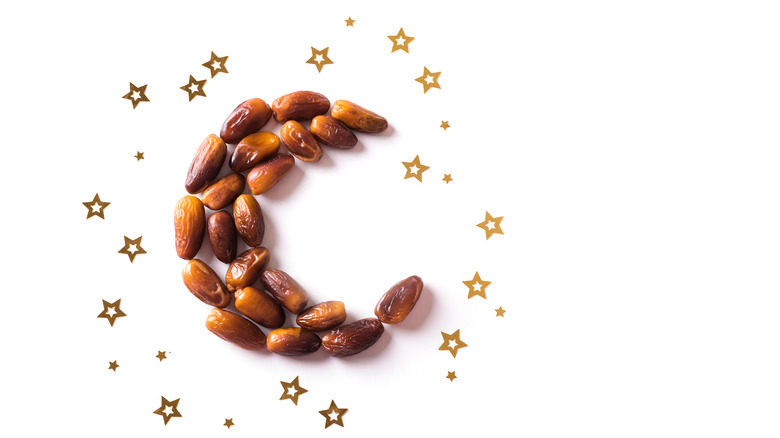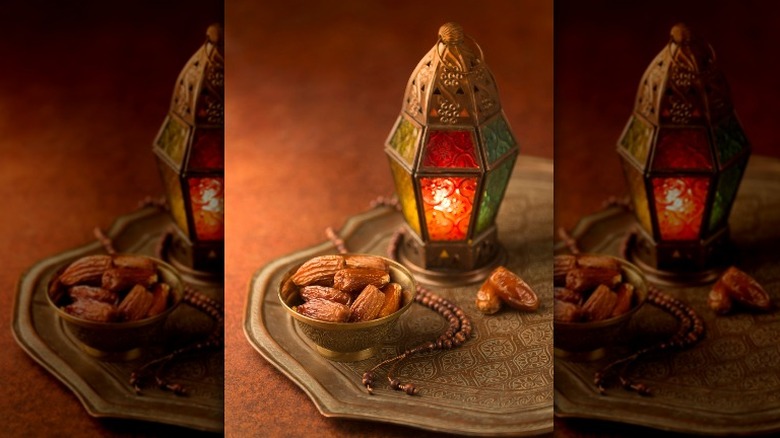Why Dates Are So Popular During Ramadan
According to History, the ninth month of the Islamic calendar is reserved for the celebration of Ramadan. It's a holy month of reflection, prayers, and fasting observed by Muslims who follow the Islamic religion. Ramadan is centered around fasting from dawn to dusk in an effort to cleanse the soul.
Muslims believe that the Prophet Muhammad received revelations from God that would become the Qur'an, the holy book for Muslims, during the period that is now Ramadan. Therefore, observers are to abstain from eating, drinking, smoking, and any immoral behavior from sun up to sunset for the entire month. Muslim Aid notes that dates were said to be one of Muhammad's favorite foods and have become Muslim's preferred source to break their fast during Ramadan and all year long.
The humble date, considered by many Muslims to be part of a "blessed prophetic diet," is consumed in many dishes year-round but especially during Ramadan as the "Sunnah," which is the adoption of the practices and ways of Muhammad. As the prophet enjoyed breaking his fast with dates, so do many Muslims. There may be additional reasons that the sweet fruit is popular during Ramadan.
Dates are a restorative food to eat after fasting for Ramadan
The Spruce Eats explains that after a day of going without food and drinks during Ramadan, Muslims observing the holy month break their fast with a meal called "Iftar." This meal traditionally features dates, the fruit preferred by the Prophet Muhammad and mentioned in the Qur'an multiple times. In addition to their connection with the Islamic religion, dates have a nutritional value that makes them an ideal food to eat on an empty stomach.
When fasting, blood sugar levels drop, headaches crop up, and energy is zapped. Dates are high in sugar and easy to digest, making them an ideal fruit for a depleted body to get a quick boost of energy. Available in over 40 varieties, dates also contain a good amount of fiber, magnesium, potassium, and iron that provide essential nutrients and are very filling. Of the many varieties of dates that grace the Iftar table, Ajwa dates are often preferred for their delicate texture and abundance in the Middle East.
According to History, the Islamic lunar calendar contains fewer days than the solar calendar, which means that Ramadan begins on a different day each year. Saturday, April 2, marks the beginning of Ramadan 2022, and the holy month concludes on Monday, May 2.

